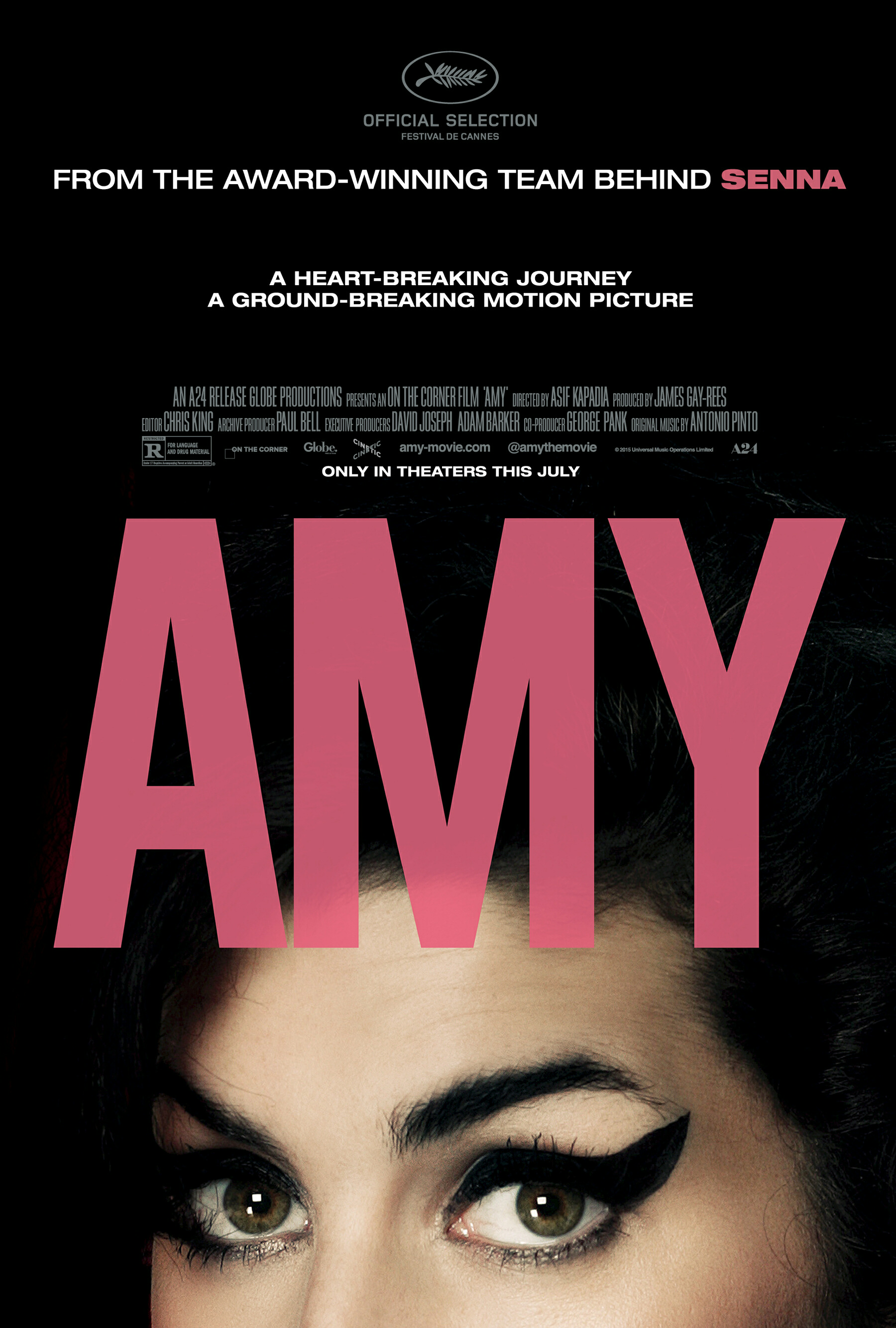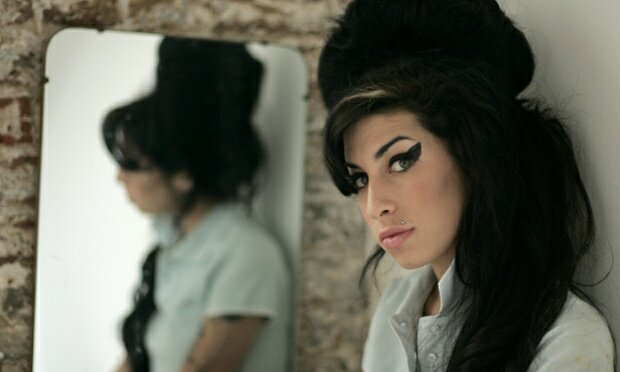Glenn here offering some thoughts on films at the Sydney Film Festival. Here he is discussing the music documentary 'Amy'.
 Given what director Asif Kapadia was able to accomplish with the otherwise (to me) uninteresting world of vroom vroom speed racing in Senna, logic would dictate that when handling a subject of great interest to me that the results would be even more outstanding. That doesn’t quite prove to be the case with Amy, another scrapbook collection of archival footage presenting the life of somebody who lived fast and died young, Amy Winehouse, but one which lacks quite the same verve of the director’s predecessor.
Given what director Asif Kapadia was able to accomplish with the otherwise (to me) uninteresting world of vroom vroom speed racing in Senna, logic would dictate that when handling a subject of great interest to me that the results would be even more outstanding. That doesn’t quite prove to be the case with Amy, another scrapbook collection of archival footage presenting the life of somebody who lived fast and died young, Amy Winehouse, but one which lacks quite the same verve of the director’s predecessor.
Kapadia is in the unique position of making a documentary about somebody whose life isn’t just rife for the Hollywood biopic treatment, but which actually feels like it already has been. Is her story not almost note-for-note for Mark Rydell’s The Rose with Bette Midler? It’s curious as a viewer of a documentary to feel as if I’d seen it all before in a fiction film (albeit one highly inspired by a real life person) and being disappointed because it comes off second best.
The Rose, Kurt Cobain and more after the jump...
It’s for this accidental, ironic familiarity – not just to The Rose, but many other stories including even the similarly structured Montage of Heck about Kurt Cobain from earlier this year – that made me wish Kapadia had perhaps diverted himself from his tried and trusted patchwork style that favours purely archival footage. This time Kapadia does include audio from newly recorded interviews (correcting Senna’s Oscar ineligibility factor?) but while he’s thankfully still avoided talking heads, he hasn’t coaxed anything revelatory out of the family members. Rather its teenage friend Juliette Ashby who delivers some of the more hard-hitting moments like when Amy told her, “It’s just no fun without drugs” after winning a Grammy.
Given a healthy amount of footage, it’s sometimes more curious what Kapadia and his editors leave out rather than what they put in. Why, for instance, do they not include anything from the press following her death despite having made such a point of her downfall in the news and talk show and stand-up comedy routines? It’s also unfortunate that once her fame skyrockets, the home videos that give the first half a potent intimacy dry up and the film relies on the occasional dots of live performance, official record company videos, and, in the third act, a repetitive use of paparazzi footage. While it serves the point of demonstrating the immense pressure Winehouse was under, it doesn’t quite have the same effect when the film essentially becomes one big wall of it. There’s a strange lack of any music videos, and quality performances that fans of the singer may wish there had been. Imagine if Senna had only including his bad races, but I guess that’s the nature of what Kapadia and editor Chris King were given.
 The similaries are endless...
The similaries are endless...
I don’t meant to sound quite so negative, but being in the shadow of any of the film's I have mentioned is not an enviable place. There are, of course, many scenes that work all too effectively including the early performances that strike at the heart of why Winehouse’s death was such a loss. Conversely, the Serbian concert footage that saw her finally reject the industry machine in front of thousands of people is truly heartbreaking? History repeats itself and it’s amazing that people found her tragic downward spiral a joke. What may ultimately be the true story of Amy is that it illuminates the path of many young women in the entertainment industry and its content should shock and shame the British press and music industries as well as her family who come off as opportunistic monsters. Amy is nonetheless a quality look at the life of an incredible musician whose talent was perhaps just too large to encompass and whose downfall was too spectacular to ignore. Watch alongside Montage of Heck and just feel miserable about what the world missed out on but be thankful of what they left behind.
